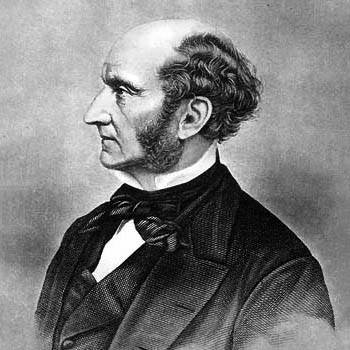
John Stuart Mill was born in 1806, in London. He was the son of James Mill, a friend of Jeremy Bentham’s who shared many of his principles. James intended that his son carry on the radical utilitarian empiricist tradition, and this was reflected in his upbringing: John learned Greek and arithmetic at 3, and helped to edit his father’s book (the History of India) at 11.1
Mill was influenced by the thought of both Jeremy Bentham and political economist David Ricardo (another friend of his father’s), and himself committed to utilitarianism after reading Bentham’s Traités de Legislation. However, his commitment to Benthamite utilitarianism was cut short by a depression he experienced at 20. According to his autobiography:
[I]t occurred to me to put the question directly to myself: “Suppose that all your objects in life were realized; that all the changes in institutions and opinions which you are looking forward to, could be completely effected at this very instant: would this be a great joy and happiness to you?” And an irrepressible self-consciousness distinctly answered, “No!”… I seemed to have nothing left to live for.2
This depression was only lifted when he moved beyond the confines of his Enlightenment intellectual background. He dived into poetry, particularly that of Wordsworth, and explored the thought of more radical thinkers such as Auguste Comte and Saint-Simon. Mill’s thought was also heavily influenced by Harriet Taylor, an important utilitarian and feminist thinker in her own right, whom he fell in love with while she was still married to another man. Mill admired Harriet greatly, and insisted that she inspired many of his later works, including On Liberty and The Subjection of Women.3 Mill became active in politics in the later stage of his life, sitting as an MP for the Liberal Party and representing the working class. Mill died in 1873, outliving Harriet Taylor Mill by 15 years.
Mill was a committed advocate of social and political reform. He was a member of the “Philosophical Radicals”, a group of political and philosophical thinkers inspired by the utilitarianism and radicalism of Jeremy Bentham. He was the second MP to call for women’s suffrage,4 and supported gender equality more generally, particularly in the domestic sphere. This was at a time when women ceased to be separate legal entities and property-owners upon marriage. He objected to women being denied the vote not only because he believed that it prevents them from advancing their own interests, but also because it impedes the cultural and intellectual development he thought happiness consists in. He rejected all supposed “natural” differences between men and women because any observed differences are products of the unequal environment in which women are raised. Mill’s staunch support of women’s rights often attracted the criticism of fellow Victorians, and at one point he was imprisoned for distributing birth-control pamphlets.5 Mill also preferred more equal distributions of wealth and supported various social welfare initiatives such as labour unions and cooperatives.
Mill’s own thought departed from Bentham’s in his conception of happiness. Bentham believed that the happiness produced by an action can be measured by a “felicific calculus”, that is, by its intensity, duration, certainty, propinquity (closeness/remoteness), fecundity (probability that the action will be followed by sensations of the same kind), purity (probability that the action will be followed by sensations of a different kind), and extent (the number of people the action affects). Mill believed there are different qualities as well as quantities of pleasure. According to some interpretations of his writing, he believed that no amount of so-called lower or bodily pleasures could be more valuable than higher or mental pleasure. This enlarged conception of happiness led him to place great importance on individuality, freedom of speech and expression, democracy, art, culture and education.6
How to Cite This Page
Want to learn more about utilitarianism?
Representative Works of John Stuart Mill
- A System of Logic (London, 1843)
- On Liberty (London, 1859)
- Utilitarianism (London, 1863)
- The Subjection of Women (1869)
Resources on John Stuart Mill’s Life and Work
- Macleod, C. (2016). John Stuart Mill. The Stanford Encyclopedia of Philosophy. Zalta, E. N. (ed.).
- Heydt, C. John Stuart Mill. The Internet Encyclopedia of Philosophy.
- Mill, J. S. (1873). Autobiography.
Prominent Quotes of John Stuart Mill
- “I regard utility as the ultimate appeal on all ethical questions; but it must be utility in the largest sense, grounded on the permanent interests of man as a progressive being.”7
- “The happiness which forms the utilitarian standard of what is right in conduct, is not the agent’s own happiness, but that of all concerned. As between his own happiness and that of others, utilitarianism requires him to be as strictly impartial as a disinterested and benevolent spectator.”8
- “The only purpose for which power can be rightfully exercised over any member of a civilised community, against his will, is to prevent harm to others. His own good, either physical or moral, is not a sufficient warrant.”9
- “It is better to be a human dissatisfied than a pig satisfied; better to be Socrates dissatisfied than a fool satisfied. And if the fool, or the pig, is of a different opinion, it is because they only know their own side of the question. The other party to the comparison knows both sides.”10
- “What, in unenlightened societies, colour, race, religion, or in the case of a conquered country, nationality, are to some men, sex is to all women; a peremptory exclusion from almost all honourable occupations, but either such as cannot be fulfilled by others, or such as those others do not think worthy of their acceptance.”11


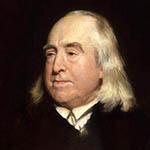
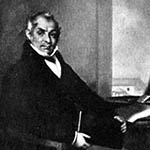
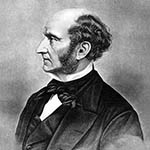

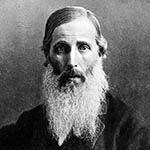


Cf. Crisp, R. (1997). Routledge Philosophy Guidebook to Mill on Utilitarianism. New York: Routledge, p. 2 ↩︎
Mill, J.S. (1873). Autobiography. ↩︎
Mill dedicated On Liberty to Harriet after her death, and wrote: “Were I but capable of interpreting to the world one half the great thoughts and noble feelings which are buried in her grave, I should be the medium of a greater benefit to it, than is ever likely to arise from anything that I can write, unprompted and unassisted by her all but unrivalled wisdom.” Mill, J. S. (1859). On Liberty. ↩︎
The UK Parliament, The 1866 Women’s Suffrage petition: the first mass Votes for Women petition. ↩︎
Cf. Reeves, R. (2007). John Stuart Mill: Victorian Firebrand. London: Atlantic Books. ↩︎
Cf. Mill, J. S (1859). On Liberty. ↩︎
On Liberty, 1859 ↩︎
Utilitarianism, 1863 ↩︎
On Liberty, 1859 ↩︎
Utilitarianism, 1863 ↩︎
The Subjection of Women, 1869 ↩︎


